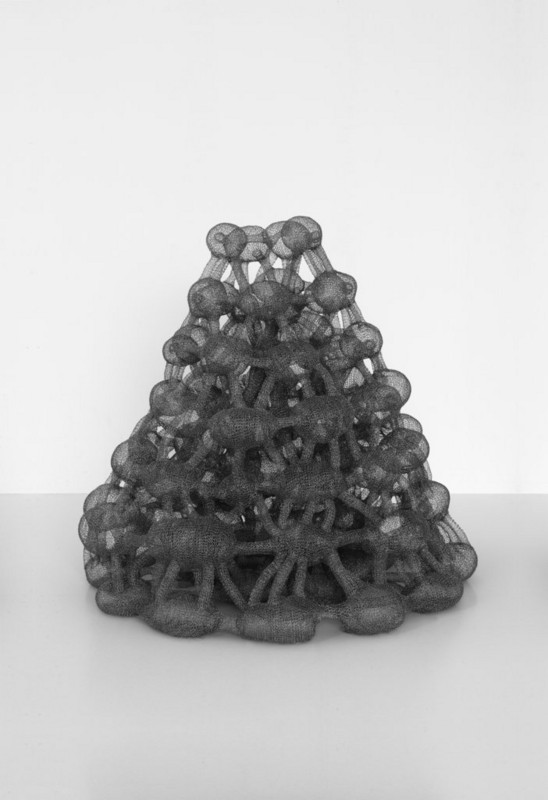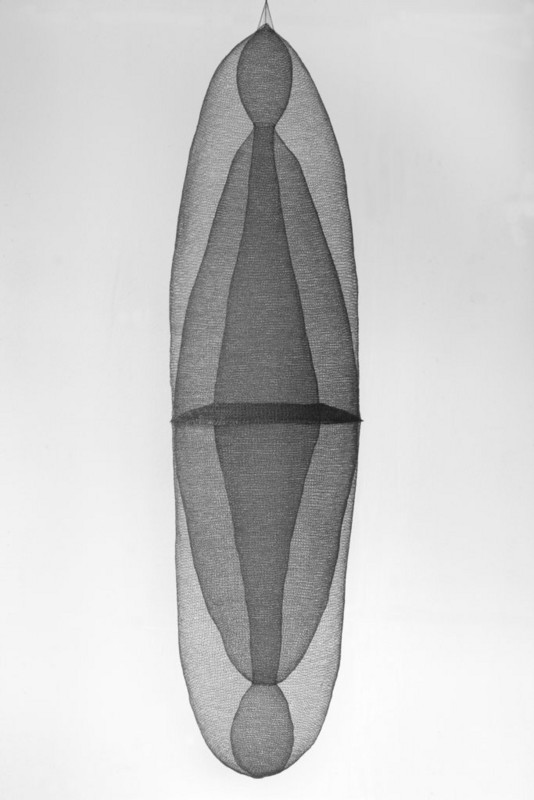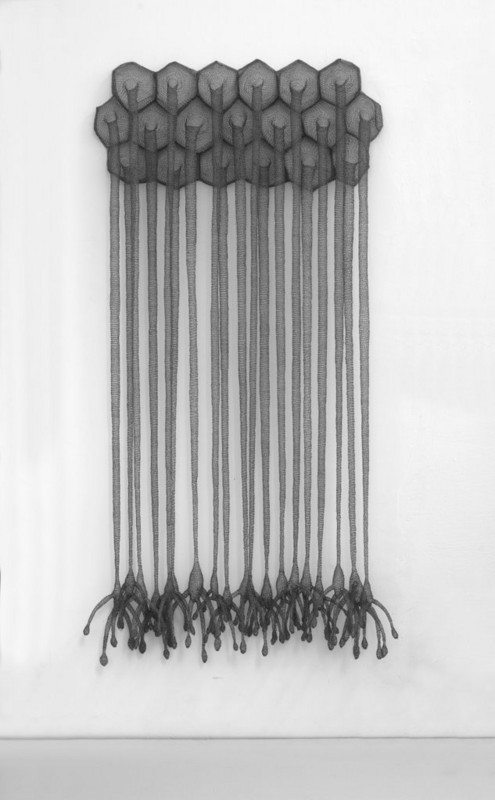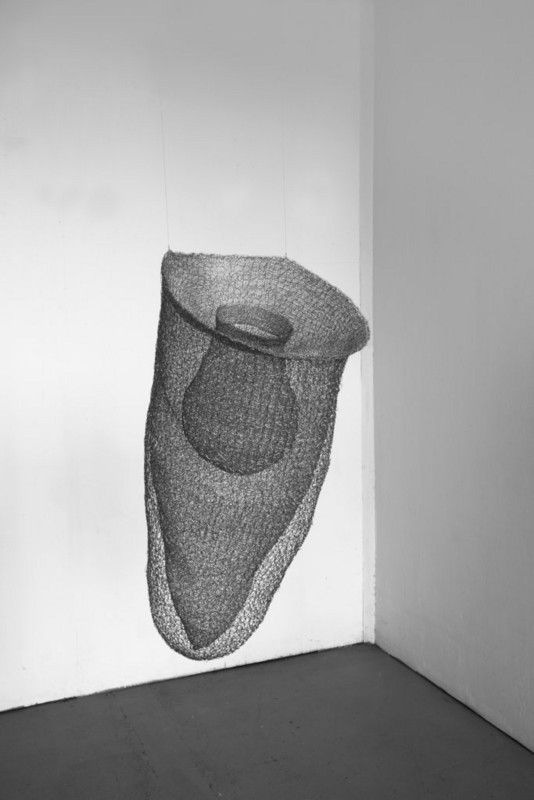Luise Unger
06 Nov 2015 - 23 Jan 2016
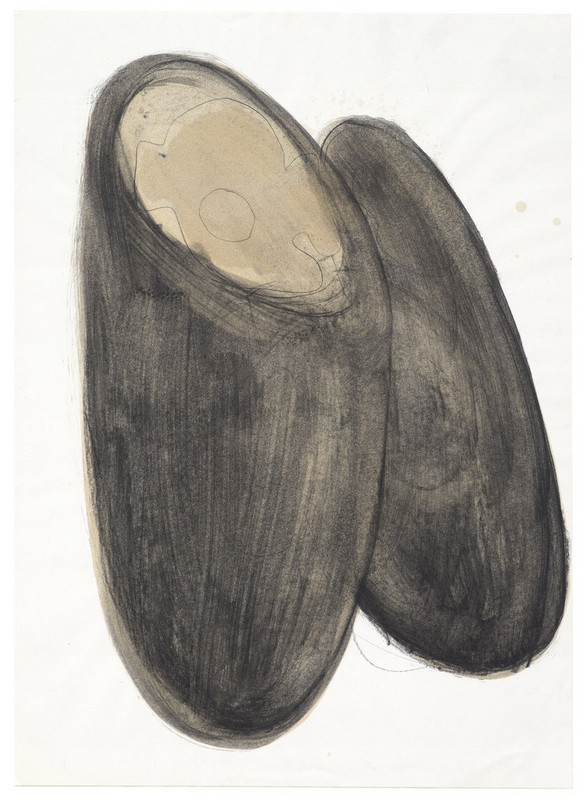
Luise Unger
Ohne Titel
2007
Shelllac and Pencil on paper
29,7 x 21 cm
titled verso in the lower left, signed and dated
©Foto: Galerie Karsten Greve, Köln
Ohne Titel
2007
Shelllac and Pencil on paper
29,7 x 21 cm
titled verso in the lower left, signed and dated
©Foto: Galerie Karsten Greve, Köln
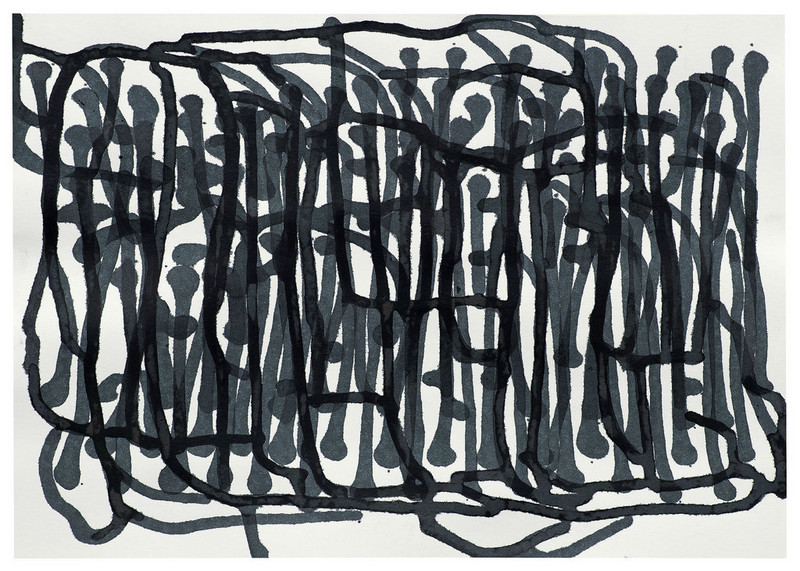
Luise Unger
ÜBEREINANDER
2014
Ink on paper
21 x 29,7 cm
titled verso in the lower right, dated and signed
©Foto: Galerie Karsten Greve, Köln
ÜBEREINANDER
2014
Ink on paper
21 x 29,7 cm
titled verso in the lower right, dated and signed
©Foto: Galerie Karsten Greve, Köln
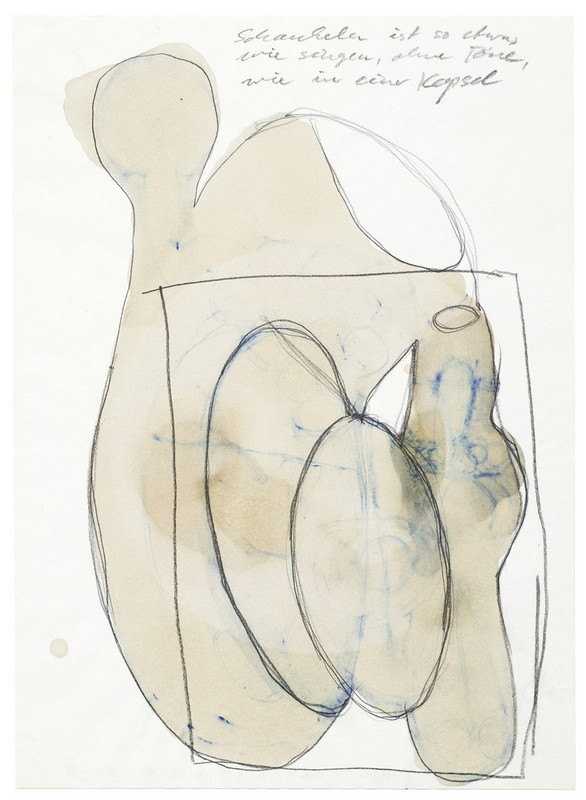
Luise Unger
Ohne Titel
2007
Schellack, Bleistift und Kugelschreiber auf Papier
29,7 x 21 cm
titled verso in the lower center, signed and dated.
©Foto: Galerie Karsten Greve, Köln
Ohne Titel
2007
Schellack, Bleistift und Kugelschreiber auf Papier
29,7 x 21 cm
titled verso in the lower center, signed and dated.
©Foto: Galerie Karsten Greve, Köln
The “craving to make the impervious tangible” pervades the sculptural and graphic creation of Luise Unger.
It is the first time that Galerie Karsten Greve Cologne is displaying a comprehensive solo show of predominantly new stainless steel wire sculptures as well as works on paper. Already in 2009 a solo exhibition in the Parisian gallery space had been dedicated to Unger’s work.
While largely abstract, her expressive style also encompasses geometric-architectural and biomorphic elements. The Cologne-based artist ascribes her inspiration, in particular for her repertoire of organically rounded creations, largely to the structures and cyclical elements found in nature.
In her earlier sculptural work Luise Unger experimented with various materials such as wood, metal, rubber, wax and cotton. It was in the past fifteen years that her interest in elaborate stainless steel wire crochet sculpture asserted itself. The resulting hand-made tissue allows her to build seamlessly rounded bodies that remain susceptible to molding at various stages of development. Voluminous, ethereal and at the same time sophisticated structures arise from the fragile yet robust and ultimately adamantine wire, a frail pliability inherent in them. Luise Unger’s works compel through their lightness, their beauty and poetry, despite the creative process they originate from being a lengthy and tedious one. Upon envisioning the repetitious movements of the crocheting needle, reminiscent of the gradual growth of a plant, a meditative notion of eternity sets in.
A commonality found in all her crochet wire sculptures - regardless of whether they are suspended or mounted on a wall or base, round and closed or asymmetrically opened up - is a multilayered quality. Layers of crochet netting rest on top of one another, permeable to light, air and the spectator’s gaze, who – as though using X-ray vision – scans for dense and lucent areas. And yet there is often an empty space at their centre, encapsulated nothingness, an incorporeal nucleus enveloped by membranes, perhaps acting as a metaphor for an unfathomable secret, a revelation, at the innermost core of humans and objects.
Moved and twisted by even the slightest breeze, the eye has to refocus on the material layers constituting the floating structures. Dependent on the incidence of light, concave and convex surfaces appear to be interchanging. For a brief moment a transcendental sameness of the interior and exterior occurs.
Paralleling aspects can be rediscovered in Luise Unger’s works on paper, which comprise an independent body of work, also challenging the viewer’s eye with at times curvaceous then again linear silhouettes. Different textures come into play where dense graphite markings take on a reflective, immaterial quality and cutout areas extrapolate new levels. The strong reciprocal connection becomes apparent when the wire sculptures take on the appearance of three-dimensional drawings elevated into mid-air, projecting their shadow puppetry onto the wall.
Luise Unger, born in 1956 in Bad Salgau, Swabia, Germany, studied sculpture under Erwin Heerich and Ulrich Rückriem at the Düsseldorf Academy from 1981 to 1989. Her work is exhibited regularly in galleries and museums; among various other activities she participated in the annual exhibition Große Kunstausstellung NRW at the Museum Kunstpalast in Düsseldorf during the period of 1999 to 2004.
Luise Unger lives and works in Cologne.
It is the first time that Galerie Karsten Greve Cologne is displaying a comprehensive solo show of predominantly new stainless steel wire sculptures as well as works on paper. Already in 2009 a solo exhibition in the Parisian gallery space had been dedicated to Unger’s work.
While largely abstract, her expressive style also encompasses geometric-architectural and biomorphic elements. The Cologne-based artist ascribes her inspiration, in particular for her repertoire of organically rounded creations, largely to the structures and cyclical elements found in nature.
In her earlier sculptural work Luise Unger experimented with various materials such as wood, metal, rubber, wax and cotton. It was in the past fifteen years that her interest in elaborate stainless steel wire crochet sculpture asserted itself. The resulting hand-made tissue allows her to build seamlessly rounded bodies that remain susceptible to molding at various stages of development. Voluminous, ethereal and at the same time sophisticated structures arise from the fragile yet robust and ultimately adamantine wire, a frail pliability inherent in them. Luise Unger’s works compel through their lightness, their beauty and poetry, despite the creative process they originate from being a lengthy and tedious one. Upon envisioning the repetitious movements of the crocheting needle, reminiscent of the gradual growth of a plant, a meditative notion of eternity sets in.
A commonality found in all her crochet wire sculptures - regardless of whether they are suspended or mounted on a wall or base, round and closed or asymmetrically opened up - is a multilayered quality. Layers of crochet netting rest on top of one another, permeable to light, air and the spectator’s gaze, who – as though using X-ray vision – scans for dense and lucent areas. And yet there is often an empty space at their centre, encapsulated nothingness, an incorporeal nucleus enveloped by membranes, perhaps acting as a metaphor for an unfathomable secret, a revelation, at the innermost core of humans and objects.
Moved and twisted by even the slightest breeze, the eye has to refocus on the material layers constituting the floating structures. Dependent on the incidence of light, concave and convex surfaces appear to be interchanging. For a brief moment a transcendental sameness of the interior and exterior occurs.
Paralleling aspects can be rediscovered in Luise Unger’s works on paper, which comprise an independent body of work, also challenging the viewer’s eye with at times curvaceous then again linear silhouettes. Different textures come into play where dense graphite markings take on a reflective, immaterial quality and cutout areas extrapolate new levels. The strong reciprocal connection becomes apparent when the wire sculptures take on the appearance of three-dimensional drawings elevated into mid-air, projecting their shadow puppetry onto the wall.
Luise Unger, born in 1956 in Bad Salgau, Swabia, Germany, studied sculpture under Erwin Heerich and Ulrich Rückriem at the Düsseldorf Academy from 1981 to 1989. Her work is exhibited regularly in galleries and museums; among various other activities she participated in the annual exhibition Große Kunstausstellung NRW at the Museum Kunstpalast in Düsseldorf during the period of 1999 to 2004.
Luise Unger lives and works in Cologne.

